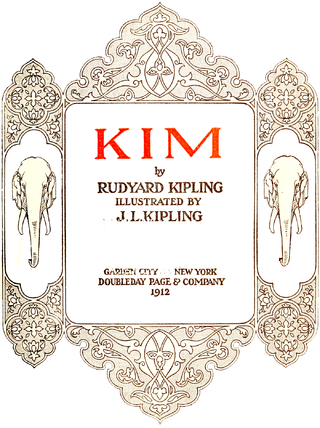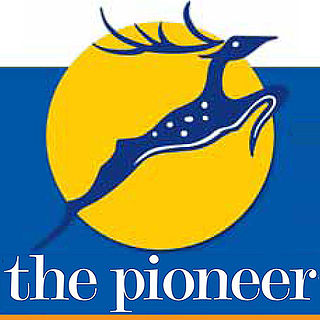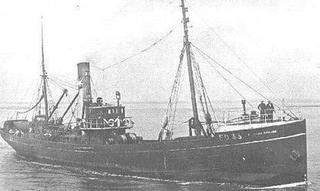
Joseph Rudyard Kipling was an English novelist, short-story writer, poet, and journalist. He was born in British India, which inspired much of his work.

Kim is a novel by Nobel Prize-winning English author Rudyard Kipling. It was first published serially in McClure's Magazine from December 1900 to October 1901 as well as in Cassell's Magazine from January to November 1901, and first published in book form by Macmillan & Co. Ltd in October 1901. The novel is notable for its detailed portrait of the people, culture, and varied religions of India. "The book presents a vivid picture of India, its teeming populations, religions, and superstitions, and the life of the bazaars and the road." The story unfolds against the backdrop of the Great Game, the political conflict between Russia and Britain in Central Asia. The novel popularized the phrase and idea of the Great Game.

The Jungle Book (1894) is a collection of stories by the English author Rudyard Kipling. Most of the characters are animals such as Shere Khan the tiger and Baloo the bear, though a principal character is the boy or "man-cub" Mowgli, who is raised in the jungle by wolves. Most stories are set in a forest in India; one place mentioned repeatedly is "Seeonee" (Seoni), in the central state of Madhya Pradesh.

"If—" is a poem by English poet Rudyard Kipling (1865–1936), written circa 1895 as a tribute to Leander Starr Jameson. It is a literary example of Victorian-era stoicism. The poem, first published in Rewards and Fairies (1910) following the story "Brother Square-Toes", is written in the form of paternal advice to the poet's son, John.

George Peress Sanderson was a British naturalist who worked in the public works department in the princely state of Mysore. He began a system for capturing wild elephants that were destructive to agriculture so as to use them in captivity. He was known in the popular press as the "Elephant King" and wrote a book on his life in the forests of India. Rudyard Kipling is believed to have modelled the character "Petersen Sahib" in his Toomai of the elephants after him.

The Lahore Museum is a museum located in Lahore, Punjab, Pakistan. Founded in 1865 at a smaller location and opened in 1894 at its current location on The Mall in Lahore during the British colonial period, Lahore Museum is Pakistan's largest museum, as well as one of its most visited ones.

The Pioneer is an English-language daily newspaper in India. It is published from multiple locations in India, including Delhi. It is the second oldest English-language newspaper in India still in circulation after The Times of India. In 2010, The Pioneer launched its Hindi version in Lucknow.
Charles Robin Allen was a British freelance writer and popular historian from London. His British parents were both born in India.

In Black and White is a collection of eight short stories by Rudyard Kipling which was first published in a booklet of 108 pages as no. 3 of A H Wheeler & Co.’s Indian Railway Library in 1888. It was subsequently published in a book along with nos 1 and 2, Soldiers Three (1888) and The Story of the Gadsbys, as Soldiers Three (1899). The characters about whom the stories are concerned are native Indians, rather than the British for writing about whom Kipling may be better known; four of the stories are narrated by the Indians, and four by an observant wise English journalist. The stories are:
"Lispeth" is a short story by Rudyard Kipling. It was first published in the Civil and Military Gazette on 29 November 1886; its first appearance in book form was in the first Indian edition of Plain Tales from the Hills in 1888, and it later appeared in subsequent editions of that collection. The tale is an interesting example of Kipling's attitudes to different races and cultures, which is less simple than many accounts of his beliefs allow.
"In the House of Suddhoo" is a short story by Rudyard Kipling. The story was published in the Civil and Military Gazette on April 30, 1886 under the title "Section 420, I.P.C.". Its first appearance in book form was in the first Indian edition of Plain Tales from the Hills in 1888. It was the third of the stories that appear in that collection to be written

My Boy Jack is a 2007 British biographical television film based on David Haig's 1997 play of the same name for ITV. It was filmed in August 2007, with Haig as Rudyard Kipling and Daniel Radcliffe as John Kipling. The American television premiere was on 20 April 2008 on PBS, with primetime rebroadcast on 27 March 2011. The film attracted about 5.7 million viewers on its original ITV broadcast in the UK on Remembrance Day, 11 November 2007.

"Toomai of the Elephants" is a short story by Rudyard Kipling about a young elephant-handler. It was first published in the December 1893 issue of St. Nicholas magazine and reprinted in the collection of Kipling short stories, The Jungle Book (1894). The character Petersen Sahib is thought to be modelled on India-born English naturalist George P. Sanderson (1848–1892).

The Rudyard Kipling was a British steam trawler launched in 1920 that undertook fishing operations off the coasts of Great Britain and Ireland for almost 20 years. On 16 September 1939, shortly after the outbreak of World War II, the trawler was captured 40 miles (64 km) west of Clare Island by the German submarine U-27. After removing food, equipment, and the crew from the ship, the Germans sunk her with the use of scuttling charges. Several hours later the crew of the Rudyard Kipling were cast adrift 5 nautical miles (9.3 km) off the coast of Ireland. They eventually landed their lifeboats at Killybegs.

John Kipling was the only son of British author Rudyard Kipling. In the First World War, his father used his influence to get him a commission in the British Army despite being decisively rejected for poor eyesight. His death at the Battle of Loos caused his family immense grief.

Susannah Fullerton OAM, FRSN is a Canadian-born Australian author and literary historian. She has been president of the Jane Austen Society of Australia since 1996, which is the largest literary society in Australia. She is also patron of the Rudyard Kipling Society of Australia, and patroness of The International Georgette Heyer Society. Her subject matter includes Jane Austen, Charles Dickens, Anthony Trollope, the Mitford family, Samuel Pepys, Vita Sackville-West, Oscar Wilde, George Eliot, the Romantic Poets, and Shakespeare.
Louise Frances Field was an Irish novelist and literary critic who wrote an early historical study of children's literature in England.
"McAndrew's Hymn" is a poem by English writer Rudyard Kipling (1865–1936). It was begun in 1893, and first published in December 1894 in Scribner's Magazine. It was collected in Kipling's The Seven Seas of 1896. Some editions title the poem "M'Andrew's Hymn".

Caroline Starr Balestier Kipling was the American-born wife of Rudyard Kipling and the custodian of his literary legacy after his death in 1936.

The 1907 Nobel Prize in Literature was awarded to the British writer Rudyard Kipling (1865–1936) "in consideration of the power of observation, originality of imagination, virility of ideas and remarkable talent for narration which characterize the creations of this world-famous author." He is the first English-language writer to receive the prize, and being aged 41, is its youngest recipient to date.















